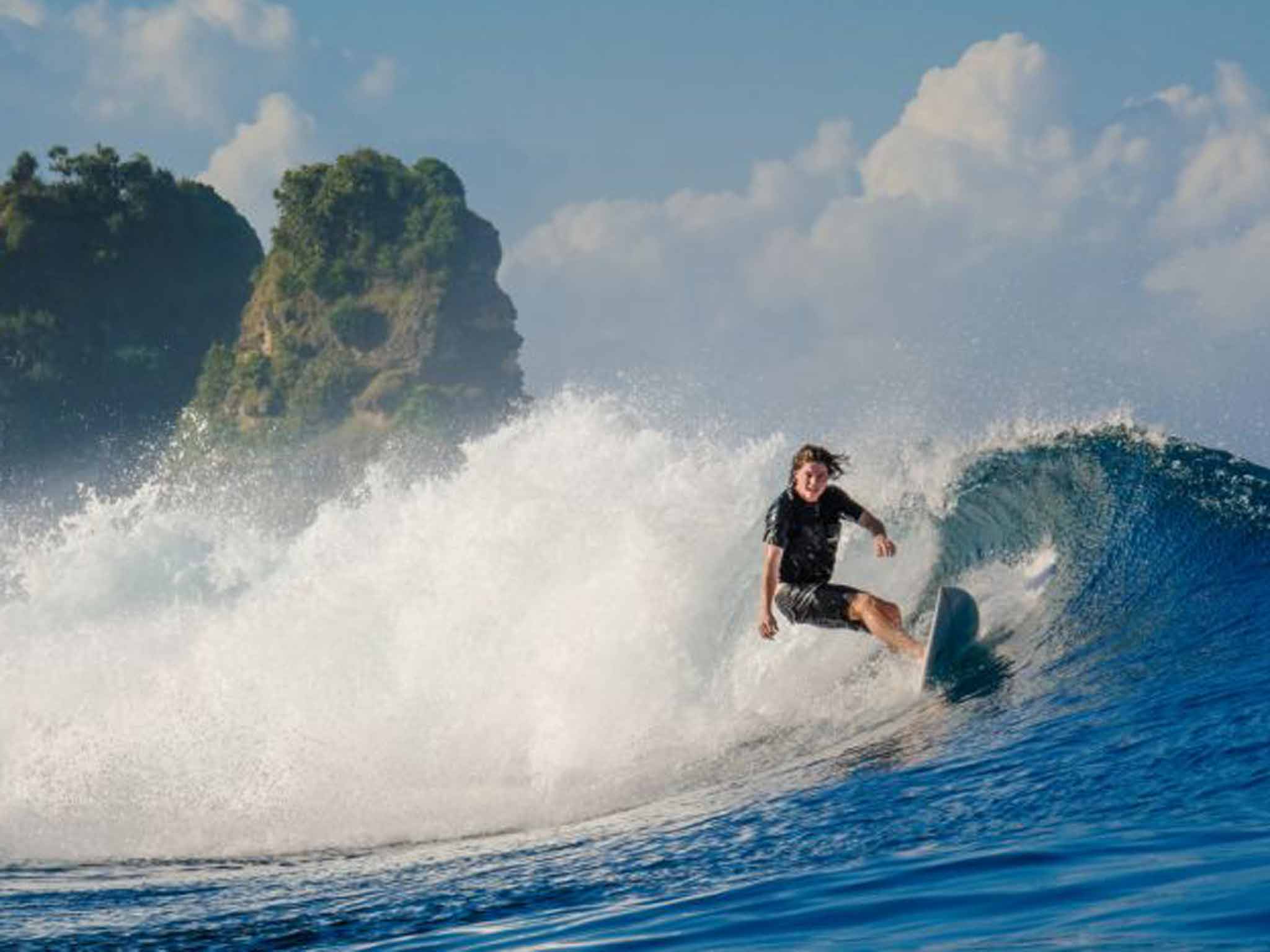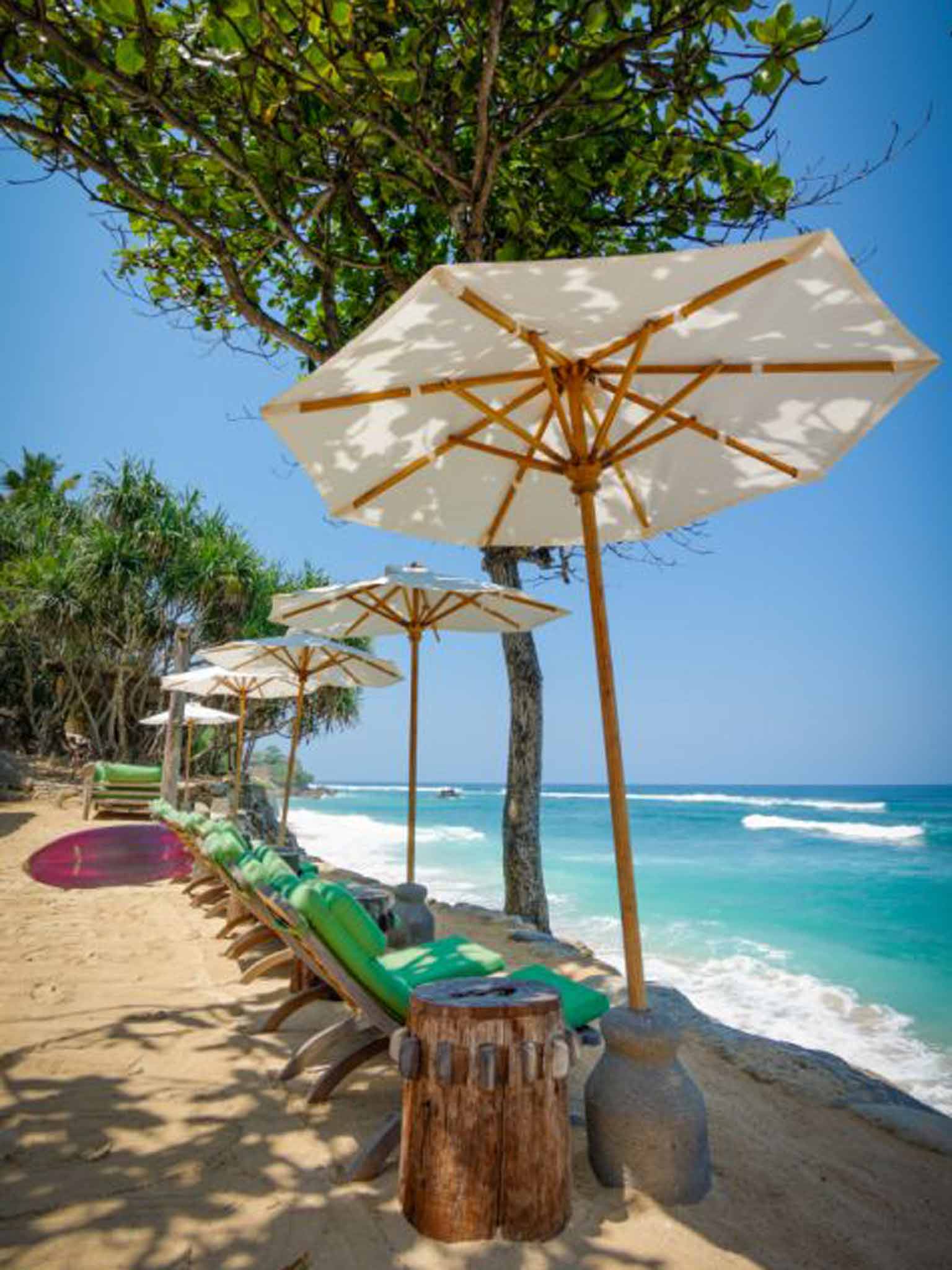Sumba, the Indonesian island that's turning heads away from Bali
You're more likely to encounter crowds at traditional horse races than the legendary surf breaks here

Your support helps us to tell the story
From reproductive rights to climate change to Big Tech, The Independent is on the ground when the story is developing. Whether it's investigating the financials of Elon Musk's pro-Trump PAC or producing our latest documentary, 'The A Word', which shines a light on the American women fighting for reproductive rights, we know how important it is to parse out the facts from the messaging.
At such a critical moment in US history, we need reporters on the ground. Your donation allows us to keep sending journalists to speak to both sides of the story.
The Independent is trusted by Americans across the entire political spectrum. And unlike many other quality news outlets, we choose not to lock Americans out of our reporting and analysis with paywalls. We believe quality journalism should be available to everyone, paid for by those who can afford it.
Your support makes all the difference.Four flights had taken their toll. My eyes scrunched tightly in order to focus on the scene around me. Huge coconut palms rose up from luxuriant vegetation; papaya trees bowed heavy with fruit. An hour's flight from Bali had deposited me 250 miles south-east on Sumba, an island twice its size, but with just 15 per cent of its population. From the car window I could see men with machetes hanging from their waists, depositing leaves in a pile on the roadside.
As recently as the 1960s, head-hunting was practised in Sumba and today this little-visited Indonesian island still offers glimpses of long-held traditions. Animals are both worshipped and slaughtered as part of routine rituals, while hand-carved spears and swords feature in annual, often bloody, mock battles between villages – recreating ferocious historical disputes.
“What's the significance of the stone boxes outside all the houses?” I asked my driver, having counted dozens. “We sacrifice animals on top of them,” he told me. “And inside, we bury our relatives.” Protestant and Marapu religions are practised here, resulting in a blend of indigenous and colonial theism – far removed from the frequent and flamboyant Hindu depictions of deities found on Bali or the Islamic practices throughout the rest of the Indonesian archipelago. Sumba is a long way from Bali's flashing neon, happy hour cocktails, tightly packed boutiques and resorts. Traditionally attracting just a few adventurous backpackers, it is still well off the tourist path.

In recent years though, things have started to change, with the creation of an exclusive bolthole on the south-west shore. Set in 570 acres of forested coastline, Nihiwatu has made a quiet but assured name for itself, first as a surf pilgrimage site then, more recently, as a discreetly luxurious retreat. This place marries man-made luxury with a sublime natural setting and keeps a keen eye on preserving Sumbanese heritage while making sure the wi-fi is reliable and the wine cellar is well stocked.
A small band of surfers first got wind of Sumba's legendary breaks in the late 1980s and settled on the site that would become known as Nihiwatu with a few tents. Founded as a modest surf retreat by American and German surfers Claude and Petra Graves, Nihi, as locals and returning guests affectionately know it, has become a huge, but by no means characterless tropical hangout. Its latest revamp began in 2012 when the American billionaire Chris Burch and South African hotelier James McBride acquired the site with the aim of expanding it into one of the most exclusive resorts on the planet. Almost four years later, Nihiwatu has evolved into a destination that doesn't just cater for surfers. Guests are encouraged to enjoy spa treatments, horse rides or yoga sessions, while personal butlers do all they can to meet every craving or desire.

Thirty spacious and secluded villas, each crowned with traditional alang-alang grass roofs, rise from the jungle, while private pools and skilfully positioned outdoor showers make cooling off in the tropical heat both liberating and indulgent. Massages are enjoyed from a stilted shack, tiptoeing into the ocean as gentle waves splash against its bamboo shins and jasmine oil is worked liberally into your skin. The experience is all the more impressive thanks to angled, inverted mirrors on the floor that provide guests with a view of the sandy beach. It's this attention to detail that sets Nihiwatu apart – that, and the overwhelming affection for surfing.
Sumba's superior waves haven't been neglected since the resort's upgrade. Indeed, staff guard the surrounding breakwater aboard boats. In Bali, dozens of surfers vie for a spot in the water, but at Nihiwatu, numbers are limited to just 10 at a time.
“As you can see, we have no televisions in the villas,” butler Bojes pointed out, as I took respite from the afternoon heat in the cool shade of my garden. “But what we do have is a selection of binoculars. You can watch the surfers on the break,” he said, with a grin, hinting at my apprehensive plan to have a go myself. “Perhaps I'll leave it for just one more day,” I responded with some trepidation.
Massages became perfect bookends to indulgent brunches, lunches and tea, while excursions to waterfalls, markets and horse races could be either snubbed or embraced, depending on one's mood. On one afternoon when I ventured beyond the resort, I watched teenage boys career around a natural amphitheatre on powerful thoroughbreds. Bareback horse-racing pulls in huge crowds on Sumba and, as I mingled within the vociferous crowd at the island's tropical equivalent of the Grand National, I was swept up on a tide of excitement. The winning jockey was only 12 but he took home the grand prize of a scooter and a plough.
Back at Nihiwatu, I staggered in from an hour of afternoon yoga to be rewarded with a plate of sashimi made from a wahoo fish that had been swimming just hours before, daubed with fiery wasabi which was almost only a littler spicier than the cocktail that followed. “This is the best Dark and Stormy you'll get anywhere in the world,” said Leo, an English barman living the Sumbanese dream, as he placed the glass on the bar and dropped in a straw crafted from sugar cane. “I spent all afternoon reducing this syrup from our own ginger and the limes are from just down the road.”
Hibiscus, bougainvillea and frangipani also garland the resort, providing aromatic accompaniment to a stroll around gardens of basil, chilli, cucumbers, aubergines and tomatoes. The russet seed pods of overhanging tamarind trees clink together in the gentle breeze, as lizards dash in and out of view and eucalyptus trees sway overhead. As seductive as the setting is, it is impossible not to be drawn to the legendary breaks offshore, the most celebrated of which is Occy's Left – named after Australian pro surfer Mark “Occy” Occhilupo.
Because the wave has a chance to build up power and speed, uninterrupted for miles, it is reputed to be one of the best left-hand breaks in the world. But, as one of the world's worst right-handed surfers, I would need a lot of luck to succeed. Conveniently though, the wave breaks just a short paddling distance from the hotel bar, The Boat House – so, I knew a cold beer was nearby, irrespective of my performance.
“This is a very special place,” Californian surf coach, Terry Simms told me as we gazed back at the tropical shore. “This wave is at the heart of what makes it so special. The force of the Indian Ocean culminates here.”
With a thick wall of water approaching, I tried to remember everything I had been taught about surfing in the past and, as I jumped to my feet, I let out an instinctive squeal of delight. I had fluked my first Sumbanese wave. For 10 magical seconds I careered towards the shore, before flopping off and into the sandy shallows. Board in hand, I stumbled back up the beach to collect my prize – that icy beer waiting tantalisingly on the bar.
Getting there
Simon Parker travelled with Royal Brunei Airlines (020 7584 6660; flyroyalbrunei.com), which has return flights from Heathrow to Bali, via Brunei, from £523 in economy and £2,710 in business class, with a Dreamliner service on long-haul routes.
Staying there
The bespoke travel experts Experience Travel Group (020 3468 6268; experiencetravelgroup.com) can tailor-make a seven-night holiday to Nihiwatu (nihiwatu.com) from £3,973pp. This includes full-board villa accommodation, scheduled Nihiwatu excursions and activities on land and sea. Internal flights and transfers within Indonesia and return international flight are also included.
More information
Join our commenting forum
Join thought-provoking conversations, follow other Independent readers and see their replies
0Comments